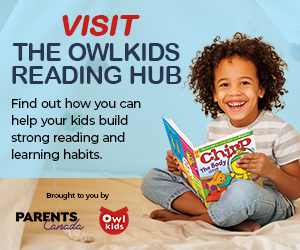Cozy up with your brood to explore the magic of reading out loud. Storytime boosts their love of reading while also helping you to make sweet memories together.
There are few things as lovely as story time when your kids are little. Sure, they’ll probably ask for more books than you have the energy to read, and you might get sick of reading the same old titles over and over again, but there is something so magical about the ritual of reading out loud. Your kids will remember the funny voices you do, or how you let them turn the pages—it’s core memory-making in action.

But reading aloud to your kids is also so much more than just a nice thing to do together. It’s essential to your child’s development. Read on to learn more about the impact of regular story time on your little ones.
Fuelling Imagination
Reading a book to your child isn’t just about passing the time or even about strengthening your bond (though it does do that organically). You’re actually creating an atmosphere of wonder and helping to feed your child’s burgeoning imagination. This simple practice will fuel creativity and independent play, which are important as your child learns and grows.
Building Language Skills
According to the State of Reading & Kids report from Scholastic Canada, 78 percent of parents who responded to the survey felt that reading helped to develop their child’s language and vocabulary skills. This is entirely true. It is a well-known fact that kids who are read to daily will have more words by the age of five than their peers who don’t enjoy consistent story times. And it doesn’t have to be hours of reading, either—a child who is read even just one book a day will hear about 290,000 more words than a child who doesn’t have a parent or guardian who can read to them.
You can bolster this learning even further by pushing your child’s critical thinking skills. Once you finish reading a book, you can ask, “What do you think will happen next” or “How do you think that character feels?” This added engagement can help your child to develop analytical skills that will help with their schoolwork as well.
Broadening Your Child’s Worldview
For most kids, life is relatively small. They have their family and friends, their school and their activities. They are only exposed to what comes across their paths through those people and places. Sure, they can be exposed to the larger world through TV and the internet, but with a book, there is a required focus that doesn’t necessarily come with viewing something on a screen. Reading about new places and topics together can help to spark conversations about important subjects, help to develop new passions and hobbies, and so much more.
Transitioning to Independent Reading
If you instil a love of books in your children at a young age, that interest in the written word is more likely to continue as they get older. Kids start to develop independent reading skills between ages seven and nine, so at this point, you can allow them to share the reading aloud with you. At some point, they’ll probably take over the narration. Then, one day, before you know it, they’ll be silently reading on their own.
But just so you know, gaining the skill to read independently doesn’t mean you can’t do story time anymore. Pick books for older kids and read a chapter together each night. Take turns reading a page. We’re even willing to bet that if you occasionally ask your teenager to read their favourite book from childhood with you, they’ll snuggle up beside you and turn the page.

How to Create a Cozy Reading Nook at Home
Create a special reading spot at home when your kids are little and watch it become a favourite place in your house. Here’s how.
Find a cozy spot. Build your reading nook in a quiet corner of the house, away from distractions and too much foot traffic.
Make it comfy. Look for a deep chair your child can settle into, or invest in some big floor cushions. Add a soft throw blanket to the mix.
Light it up. Your reading nook should have good lighting, but it doesn’t need to be super bright. A reading lamp or even a string of fairy lights can give the perfect ambiance.
Stock the shelves. Don’t forget the books! Your special reading spot should have a shelf full of titles for your child to choose from.
Add personal touches. Nothing makes a room or place feel special like mementos and pictures with sentimental value.










